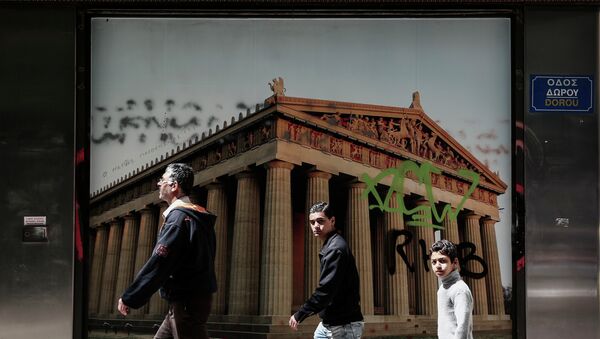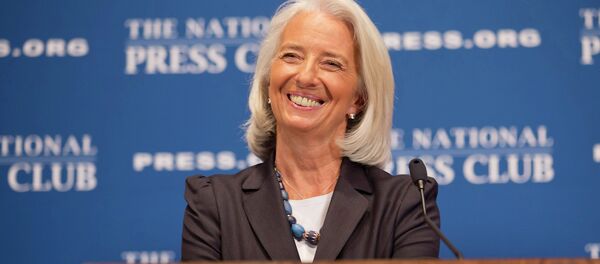As Greece faces the prospects of making an $850 million (€750 m) payment to the IMF by May 12, there has been speculation that the country may not have enough funds and could default on its payments.
Despite recently paying a $225 million (€200 mln) instalment to the IMF, these fears of a default were exacerbated by the failure to find a breakthrough in talks between Athens and European creditors that would unlock more than $8 billion in bailout funds.
What's Good for Some Isn't Good for Others
However, following the failure of such talks, there has been growing criticism of the contradicting demands being placed on Athens by both the IMF and Eurozone members, which some analysts have suggested makes it nearly impossible for all parties to agree on a deal.
In making issue of IMF-EU split over #Greece, Greek gov't has forced lenders to present utd front. A victory of sorts http://t.co/JVpPGH9Fpn
— Nick Malkoutzis (@NickMalkoutzis) May 6, 2015
The IMF is thought to be steadfast in its opposition to negotiating proposed reforms on Greek labour and pension issues, however open to reaching some form of agreement on the country's primary surplus, and perhaps even writing off some of Athens' debt.
However conversely, the Eurozone — who owns the majority of the Greek debt — is thought to be vehemently against the idea of slashing Greece's debt and negotiating changes to the country's primary surplus, but open to labour and pension reforms.
A blueprint for Greece's recovery https://t.co/qqI7aLQ5mN
— Yanis Varoufakis (@yanisvaroufakis) May 6, 2015
So, as a result of these contradictions, analysts have argued that there are red lines everywhere when it comes to the creditors' demands on Greece, making it impossible to negotiate changes, particularly with IMF officials warning they may withhold their portion of the bailout fund if significant amounts on Greece's debt isn't written-off.
Debt Talks — 'Responsibility of the Institutions'
The significant differences between the demands of the IMF and the Eurozone has led some to suggest that it is in fact the duty of the creditors to come to an agreement over restructuring Greece's debt.
"Under these circumstances there can be no compromise. The responsibility belongs exclusively to the institutions and their weakness of communicating with each other," says the financial blog, The Greek Analyst.
The criticism of the institutions comes after the Centre for International Governance Innovation (CIGI) accused the IMF of making a "dog's breakfast" of the original terms of the Greek bailout agreement, leading to further calls for creditors to take some responsibility for Greece's current situation.
The decision taken by the IMF, European Commission and European Central Bank to give Athens huge bailout loans instead of restructuring the national debt was widely criticized by many independent analysts at the time as being unsustainable in the long-term.




